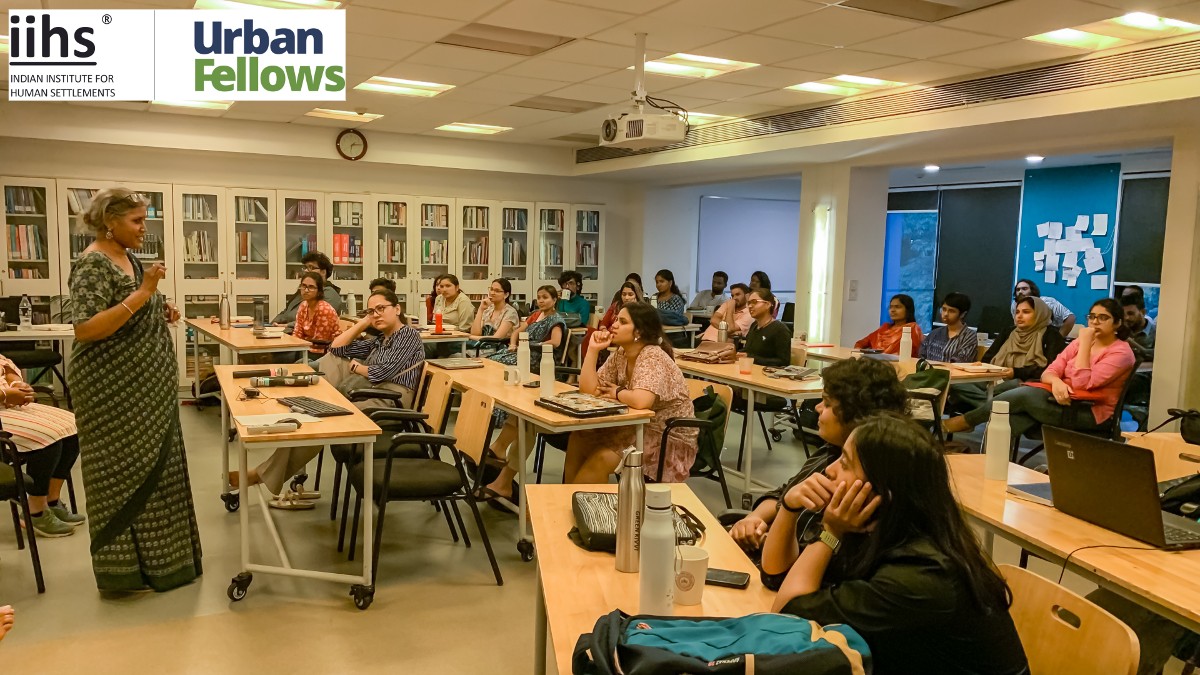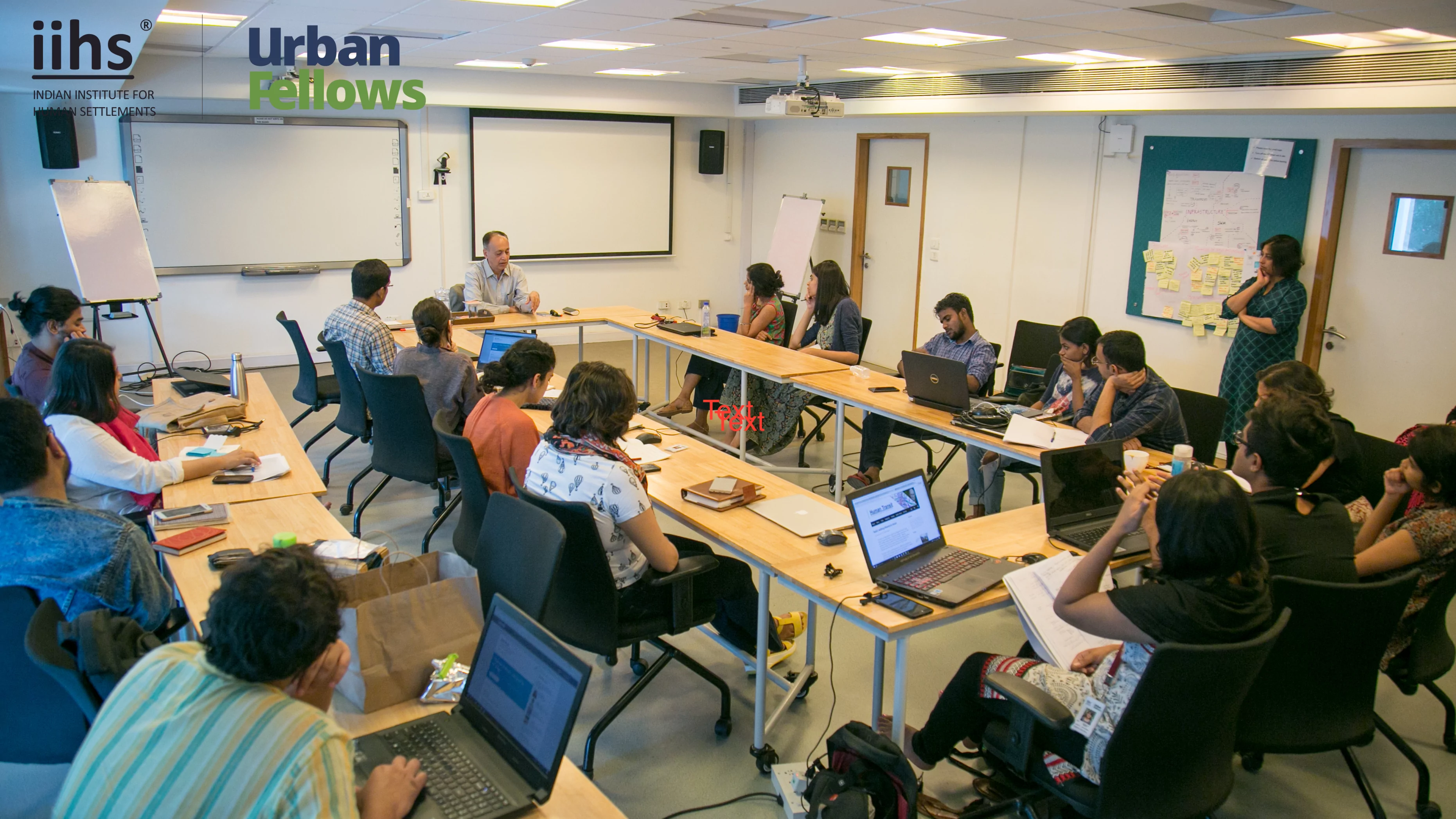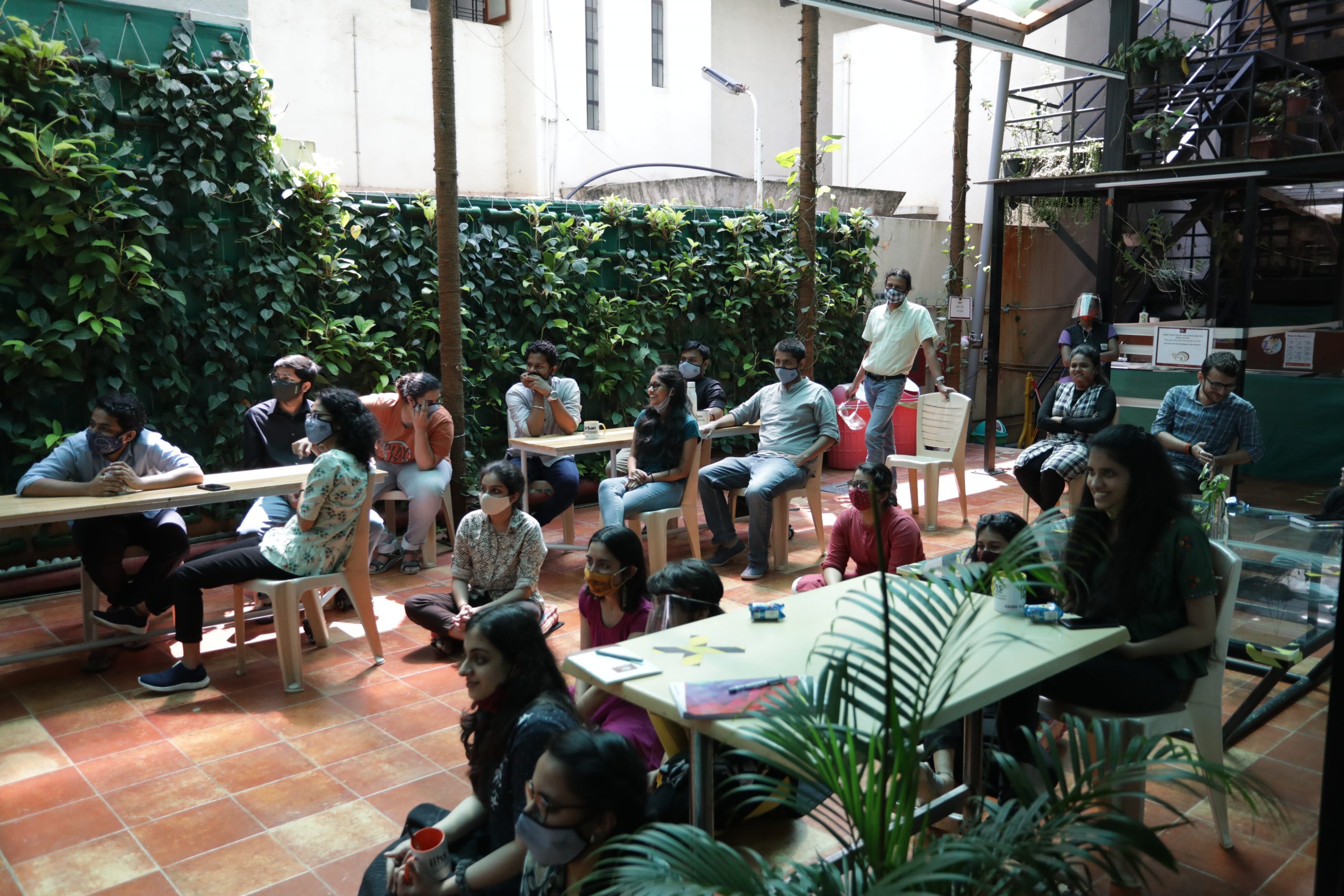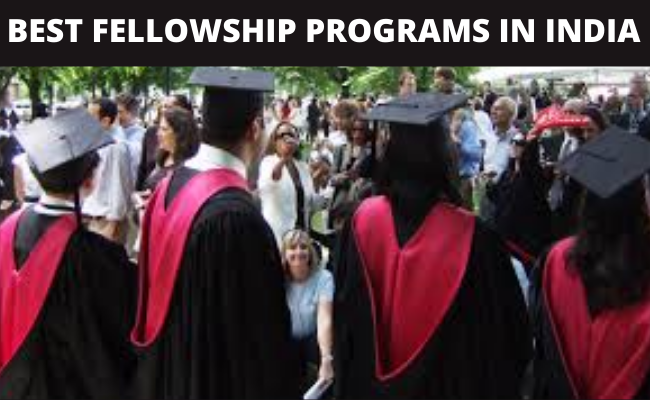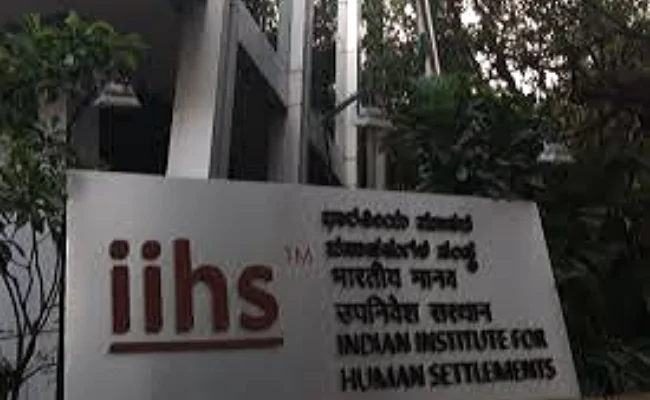The IIHS (Institution Deemed to be) University is officially recognised by the UGC under Section 3 of the UGC Act, 1956, and is classified under the Distinct category as per the UGC (Institutions Deemed to be Universities) Regulations, 2023. The University is introducing a series of innovative interdisciplinary academic degree programs, including four Master’s degrees and a Doctoral program, all focused on urban research and practice. These programs comply with the degree nomenclature specified under Section 22 of the UGC Act.
As India experiences the largest rural-to-urban migration in human history, urbanisation is profoundly transforming its economy, society, culture, and environment. Acknowledging this pivotal shift, the University is founded on the imperative to revolutionise urban education, recognising it as a key catalyst for India's national development and the creation of sustainable global futures. The University addresses this transformation by:
-
Conducting interdisciplinary teaching and applied research to generate new knowledge at both national and global levels; and
-
Preparing a new generation of urban professionals through the delivery of groundbreaking interdisciplinary academic programs.
In alignment with the vision and principles of the National Education Policy (NEP) 2020, the University views urbanisation as the center of a novel interdisciplinary knowledge framework, integrating teaching and applied research within a continuous learning ecosystem.
This distinctive, inclusive, and interdisciplinary institution is deeply rooted in the diverse cultures, languages, and scholarly traditions of India and the Global South, while also drawing valuable insights from global comparisons. It is distinguished by its interdisciplinary approach to education and research, internationally benchmarked curricula, and innovative teaching methodologies.
Building upon IIHS’s strong legacy, the University continues to advance India-centric knowledge
Read More
The IIHS (Institution Deemed to be) University is officially recognised by the UGC under Section 3 of the UGC Act, 1956, and is classified under the Distinct category as per the UGC (Institutions Deemed to be Universities) Regulations, 2023. The University is introducing a series of innovative interdisciplinary academic degree programs, including four Master’s degrees and a Doctoral program, all focused on urban research and practice. These programs comply with the degree nomenclature specified under Section 22 of the UGC Act.
As India experiences the largest rural-to-urban migration in human history, urbanisation is profoundly transforming its economy, society, culture, and environment. Acknowledging this pivotal shift, the University is founded on the imperative to revolutionise urban education, recognising it as a key catalyst for India's national development and the creation of sustainable global futures. The University addresses this transformation by:
-
Conducting interdisciplinary teaching and applied research to generate new knowledge at both national and global levels; and
-
Preparing a new generation of urban professionals through the delivery of groundbreaking interdisciplinary academic programs.
In alignment with the vision and principles of the National Education Policy (NEP) 2020, the University views urbanisation as the center of a novel interdisciplinary knowledge framework, integrating teaching and applied research within a continuous learning ecosystem.
This distinctive, inclusive, and interdisciplinary institution is deeply rooted in the diverse cultures, languages, and scholarly traditions of India and the Global South, while also drawing valuable insights from global comparisons. It is distinguished by its interdisciplinary approach to education and research, internationally benchmarked curricula, and innovative teaching methodologies.
Building upon IIHS’s strong legacy, the University continues to advance India-centric knowledge and applied research on various dimensions of urbanisation, aimed at promoting equitable, sustainable, and efficient development of Indian cities and settlements.
IIHS ACADEMIC DEGREE PROGRAMMES 2025-2026
In 2025, IIHS (Institution Deemed to be) University is offering five degree programs: four Master’s degrees and one PhD program.
The Master’s programs include:
-
Sustainability Science and Practice,
-
Climate Change Science and Practice,
-
Urban Economic and Infrastructure Development,
-
and Urban Studies and Practice.
Each Master’s program is a two-year, full-time, interdisciplinary course open to students from any undergraduate background. The curriculum follows the University’s core principles, guiding students from building a broad interdisciplinary foundation on urban and urbanising systems to developing specialised sectoral knowledge. This is then applied practically through internships and/or dissertation projects.
The two-year programs employ a distinctive teaching approach that integrates knowledge from traditional fields like humanities and arts with STEM disciplines (Science, Technology, Engineering, and Mathematics), as advocated by the National Education Policy (NEP).
Program details:
| Level |
Type of Program |
Nomenclature |
Duration |
| Post-Graduate |
Master of Science (Sustainability Science and Practice) |
MSc (Sustainability Science and Practice) |
2 years |
| Post-Graduate |
Master of Science (Climate Change Science and Practice) |
MSc (Climate Change Science and Practice) |
2 years |
| Post-Graduate |
Master of Science (Urban Economic and Infrastructure Development) |
MSc (Urban Economic and Infrastructure Development) |
2 years |
| Post-Graduate |
Master of Arts (Urban Studies and Practice) |
MA (Urban Studies and Practice) |
2 years |
| Doctoral |
Doctorate in Urban Studies and Practice |
PhD |
5 years |
All academic degree programs offered by the University are officially recognised by the UGC as legitimate university degrees, in compliance with Section 22 of the UGC Act, 1956. These programs follow the approved degree nomenclature established by the UGC.
Admission to Master’s Programmes
Eligibility
-
Applicants must hold a Bachelor’s degree in any discipline.
-
Candidates should be no older than 35 years as of 1 August 2025.
-
Basic proficiency in reading, writing, and understanding English is required. The University offers support with English writing for those who need it.
-
Selection is merit-based, determined by performance in the University’s Entrance Examination, written essays, and interviews.
-
To promote an inclusive and diverse learning environment, the University applies a transparent and fair weighted Diversity Points system during the selection process.
Admission Process
Admission to the University’s Master’s programs involves a two-stage selection procedure that includes an entrance exam, written submissions, and an interview. For full details, please refer to the Prospectus.
Application:
Register and apply online by submitting the application form along with personal details, a Statement of Motivation, an essay, and optionally, a sample of work. Applicants may apply to up to two Master’s programs, clearly indicating their first choice.
Stage 1: Entrance Exam
-
The entrance exam is a two-part online test scheduled for 23 June 2025.
-
Candidates must achieve a minimum overall score of 40% to qualify for Stage 2.
-
The exam includes:
-
General section: reading comprehension, basic mathematics, and logical reasoning
-
Advanced section: subject knowledge related to the Master’s program themes
-
To foster inclusivity and diversity, the University applies a weighted Diversity Points system during admissions.
Stage 2: Essay Evaluation and Interview
-
Shortlisted candidates from Stage 1, based on exam scores and diversity points, progress to Stage 2.
-
Their written essays, submitted during application, will be anonymously reviewed and graded.
-
Candidates must participate in a 30-minute online interview.
-
A minimum combined score of 40% from the essay and interview is required for final consideration.
Admission and Financial Assistance
-
Final selection is based on cumulative scores from both stages.
-
Admission offers are made in two rounds—First List and Waitlist—via email and the application portal.
-
Selected candidates must confirm their admission by paying a refundable deposit of INR 5,000.
-
Applicants must submit self-attested documents for verification; originals will not be retained.
-
Shortlisted candidates may apply for financial assistance through the admissions portal. Financial aid applications are reviewed only after an admission offer is made.
Alumni Impact
Since its inception, the UFP has trained over 300 fellows who have worked or studied across 18 states and 23 cities in India. Approximately 15% have pursued further education at top global universities across five continents. Alumni have contributed to various sectors, including private enterprise, consulting, think tanks, government, development organisations, and academia.





